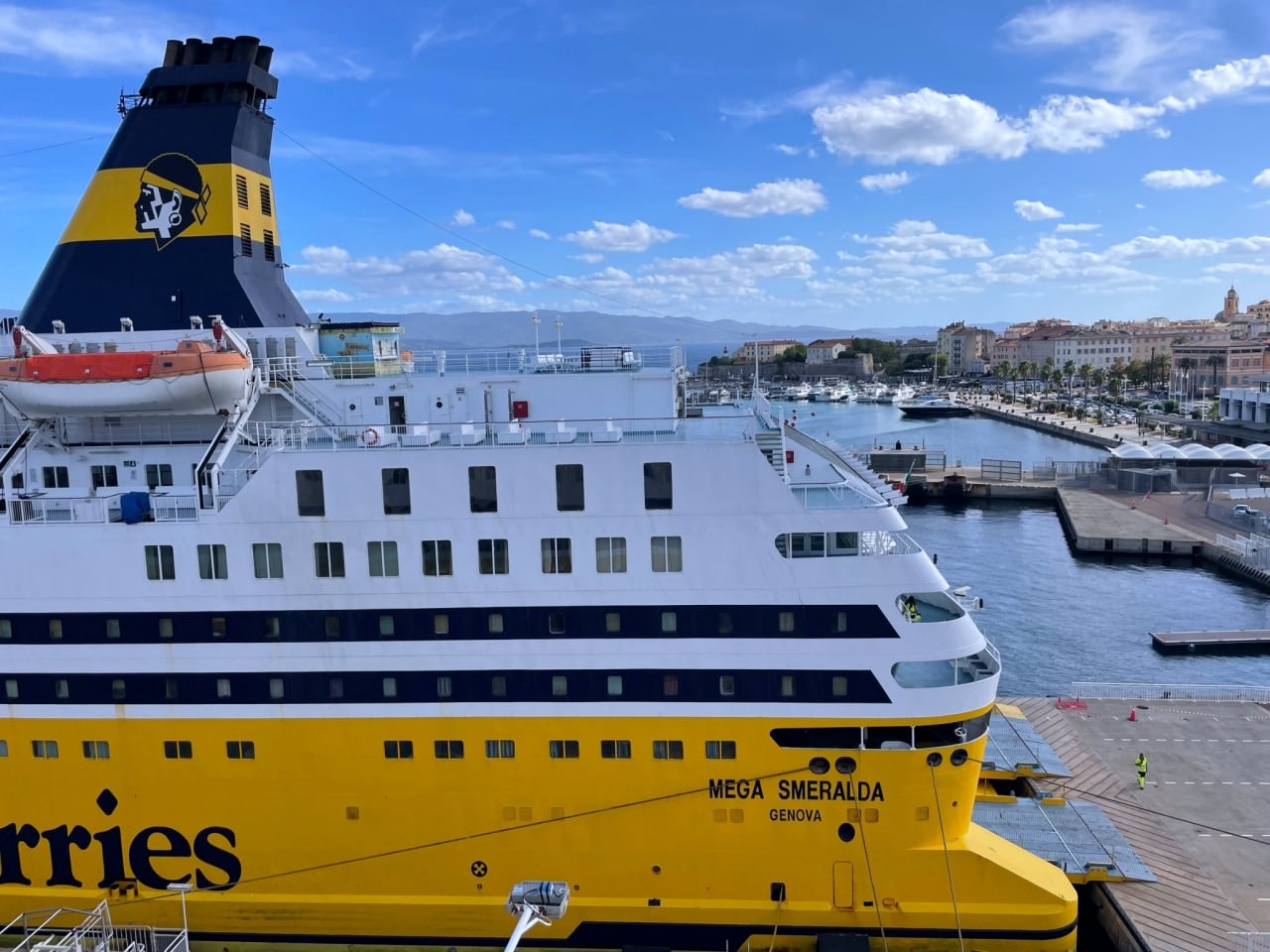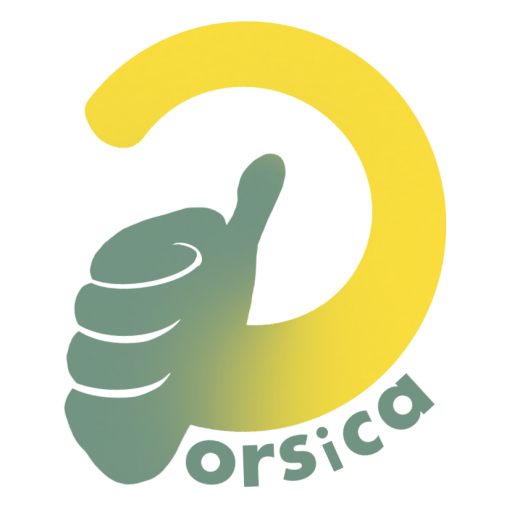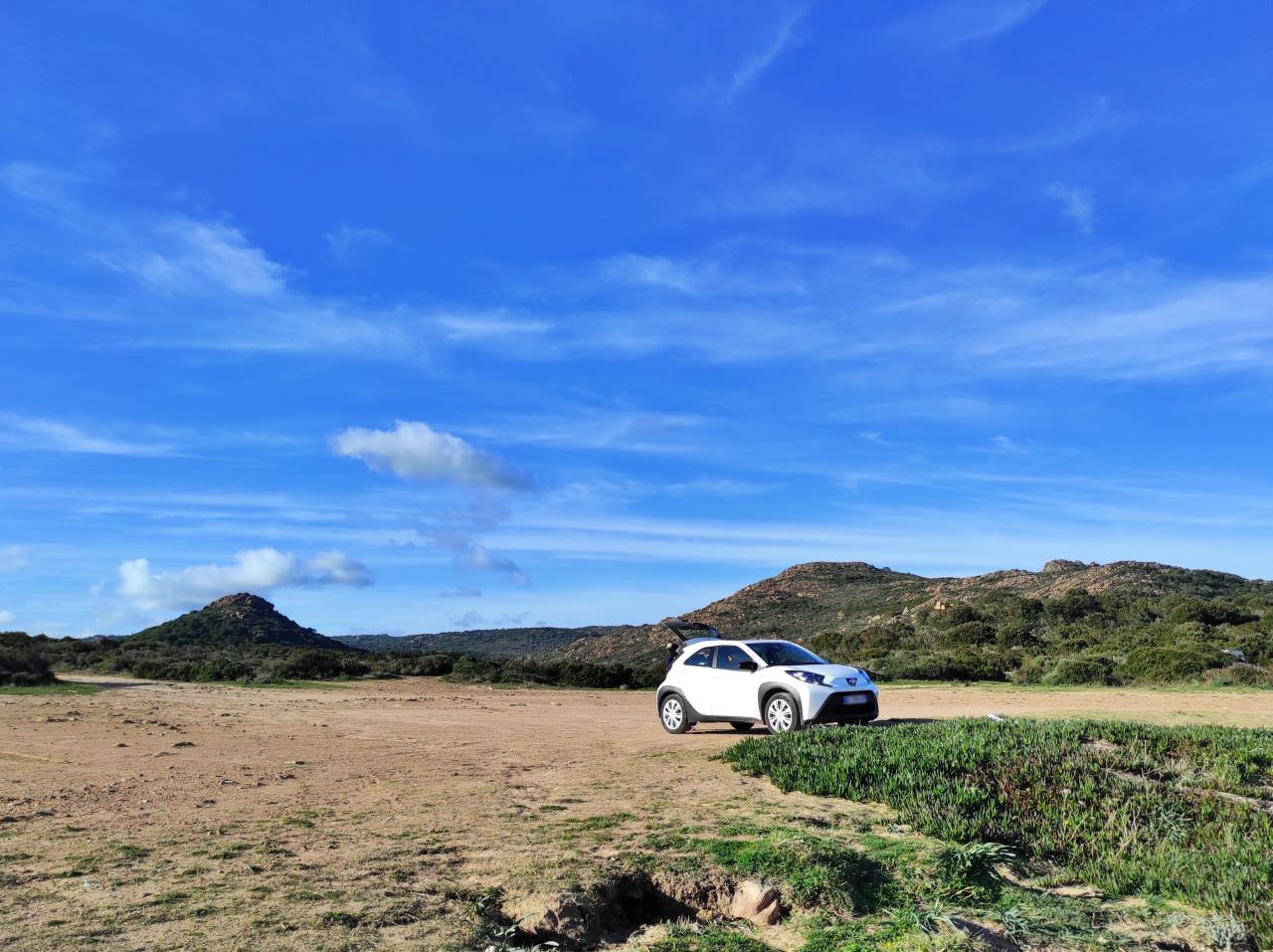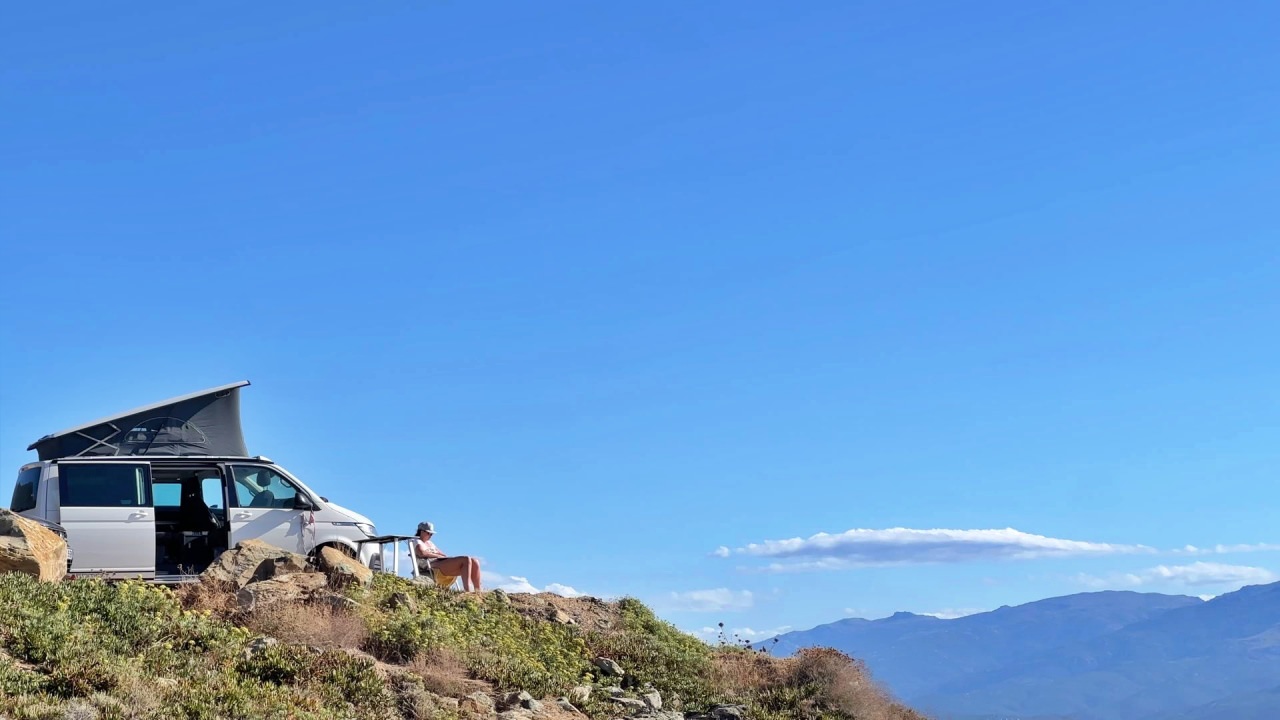Discover the charm of Corsica, a gem in the heart of the Mediterranean, revered for its rich tapestry of landscapes and enduring cultural imprint. As you set sights on this island, prioritizing transportation logistics is crucial to unlock a seamless Corsican sojourn.
Getting to Corsica
For ferry travel, key mainland departure points in France include Marseille, Nice, and Toulon, while in Italy, you may embark from Genoa, Livorno, Piombino, or Savona.
In the realm of air travel, myriad cities across Europe and North Africa host flights to Corsica.
Corsica by Ferry
Corsica’s main ferry ports are Bastia, Ajaccio, Calvi, Ile Rousse, Propriano, and Porto Vecchio. The ferry journey from mainland France can take 6 to 12 hours, depending on your chosen route. Check out our dedicated ferry guide to Corsica for more details.
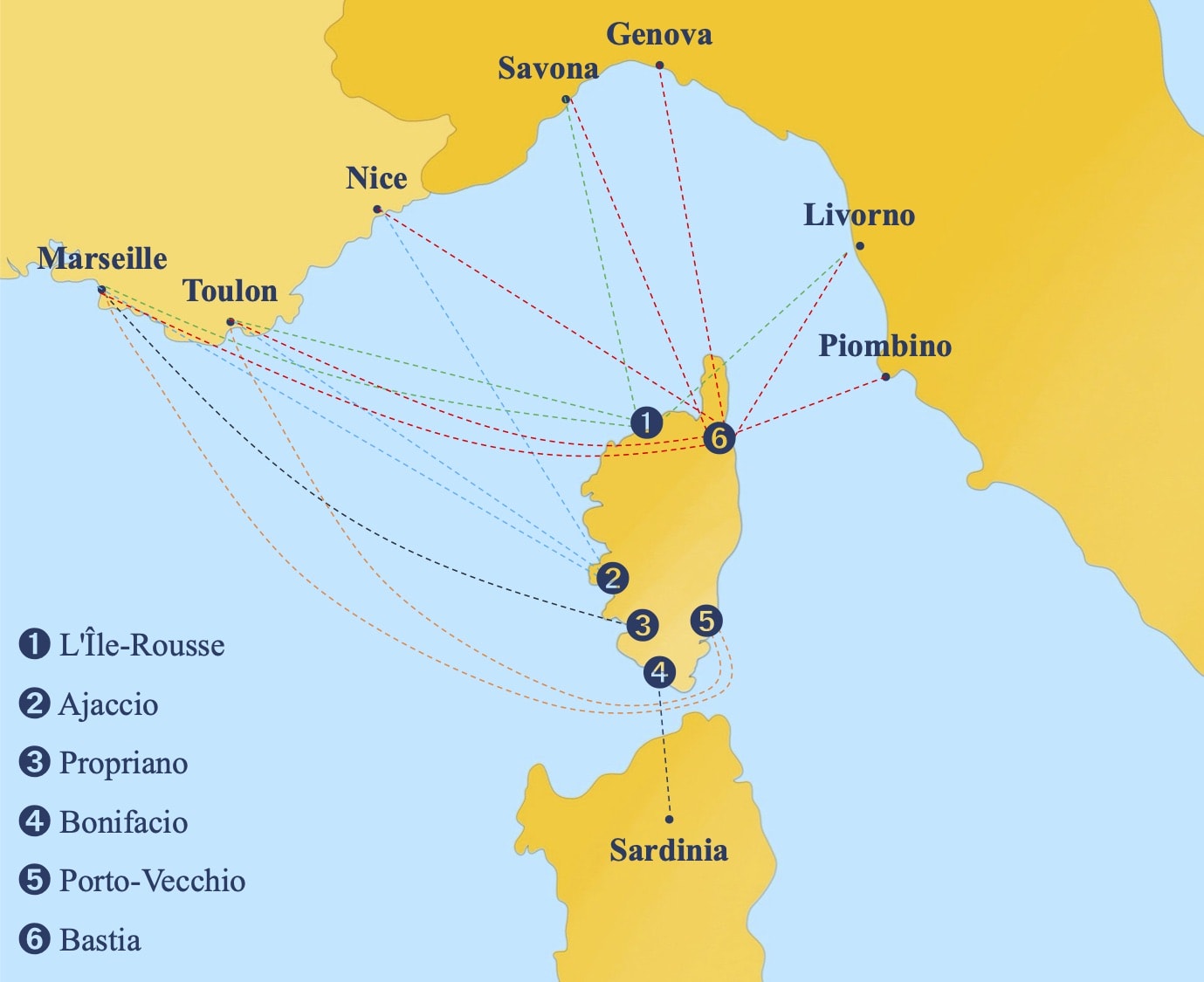
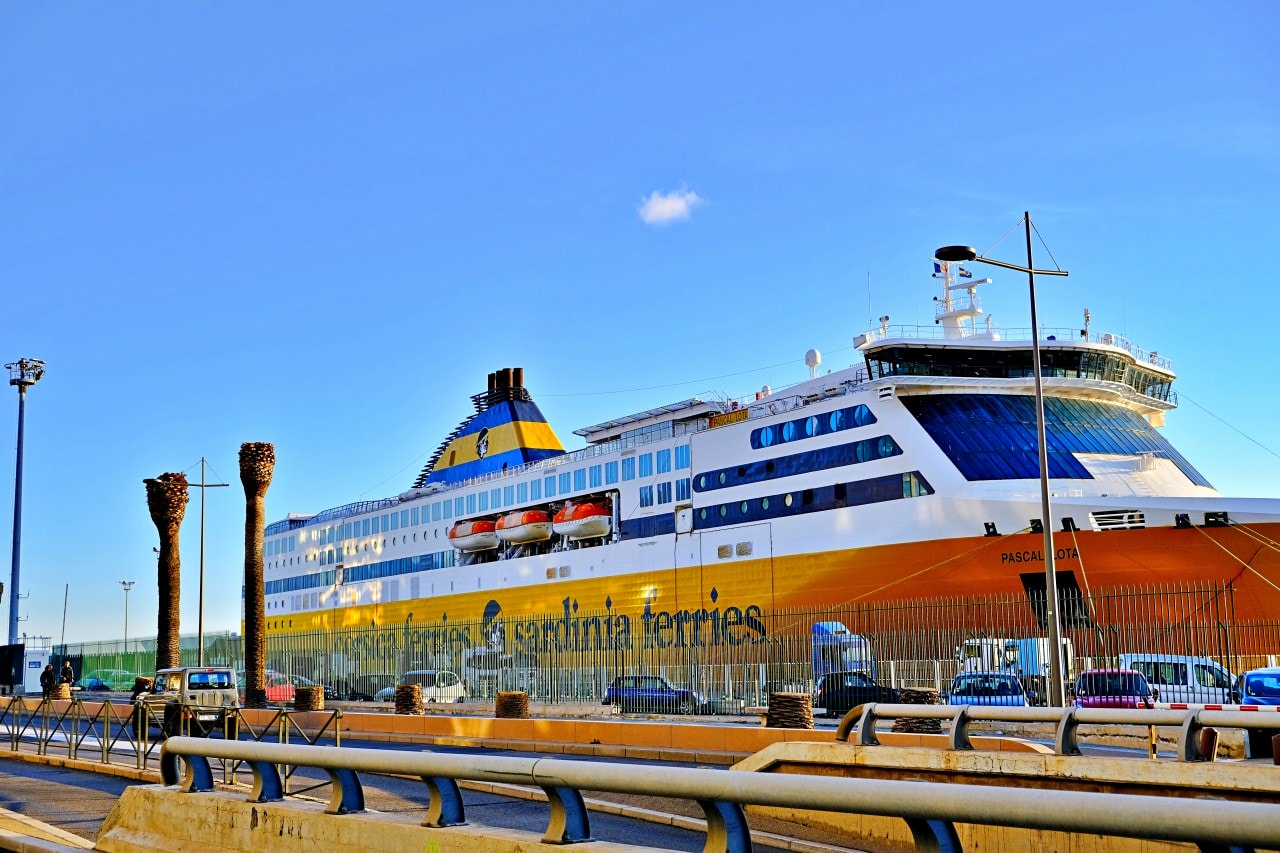
Corsica by Air
Corsica boasts four main airports: Bastia-Poretta (BIA), Ajaccio Napoleon Bonaparte (AJA), Calvi – Sainte-Catherine (CLY), and Figari Sud-Corse (FSC). These airports offer direct flights to major European and North African cities, making it convenient to reach the island. For instance, a direct flight from Paris takes around 2 hours.
For more detailed information, check out our dedicated guide to traveling to Corsica by air.
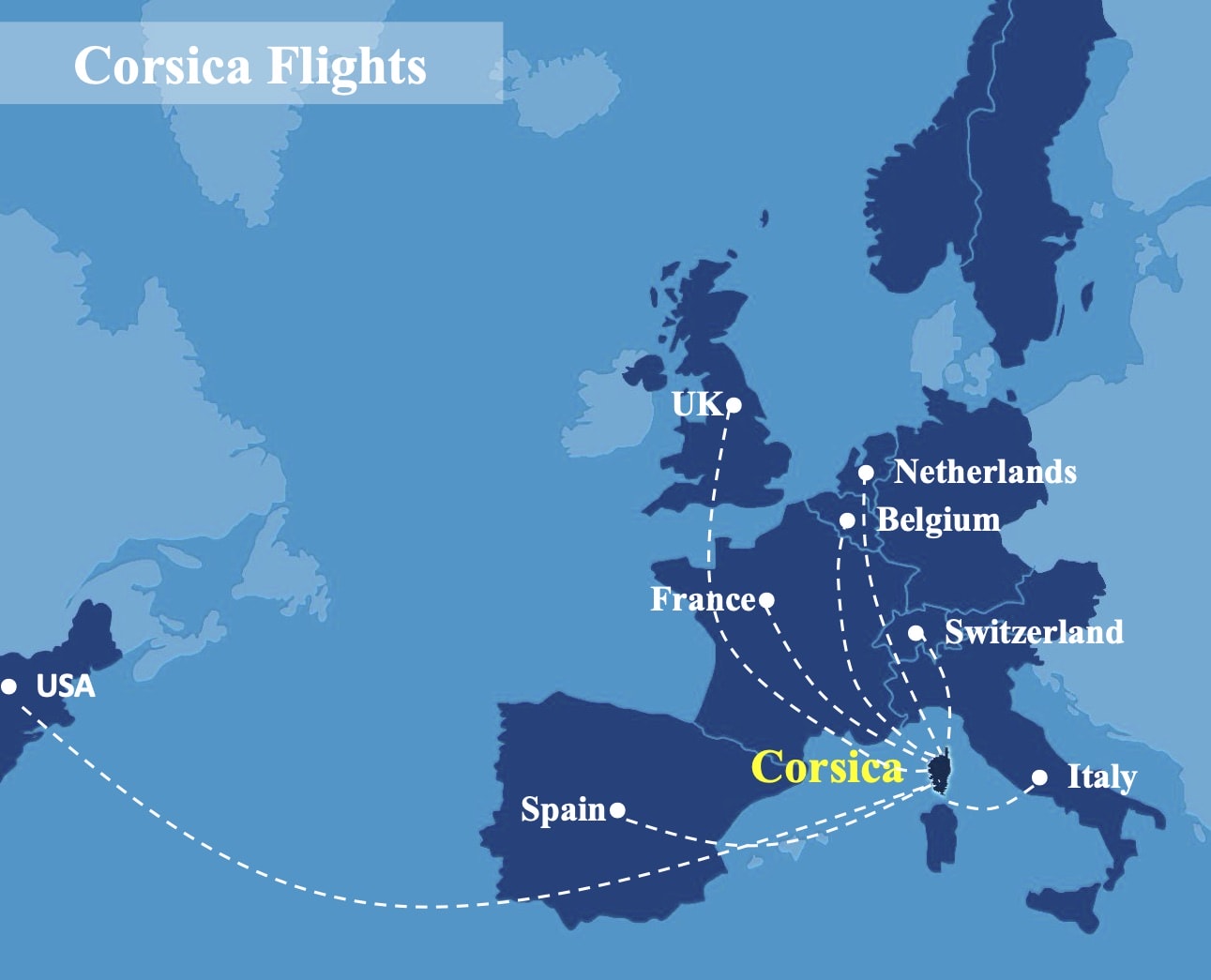
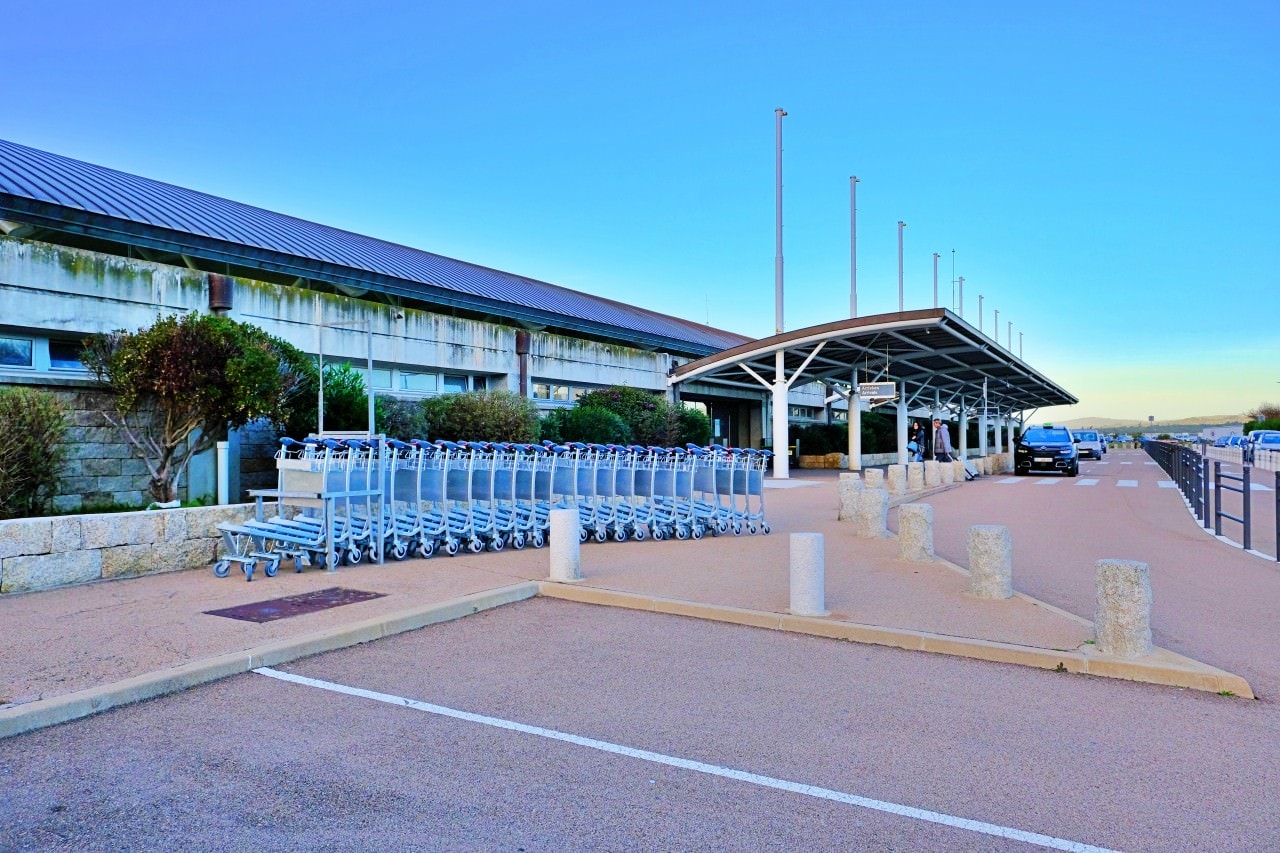
Corsica Ferry & Air Services
Commencing your adventure to the alluring Corsican island starts with selecting a transportation method that suits your travel inclinations.
Ferry Travel
Corsica is serviced by several reputable ferry companies including Corsica Ferries,Corsica Linea, La Meridionale, and Moby Lines. These companies operate regular routes from mainland Europe, offering a classic and scenic voyage across the calm Mediterranean waters.
Departure Ports:
- France: Marseille, Nice, and Toulon are the principal ports of departure.
- Italy: Genoa, Livorno, Piombino, Savona provide direct ferry routes to Corsica.
Arrival Ports in Corsica:
- Bastia, Ajaccio, and Ile Rousse are the key ports welcoming travelers to Corsica’s picturesque landscapes.
Duration:
Ferry crossings range from a swift 4-hour passage from Livorno to Bastia, to a leisurely 7-hour voyage from Marseille to Ajaccio, allowing for a versatile scheduling.

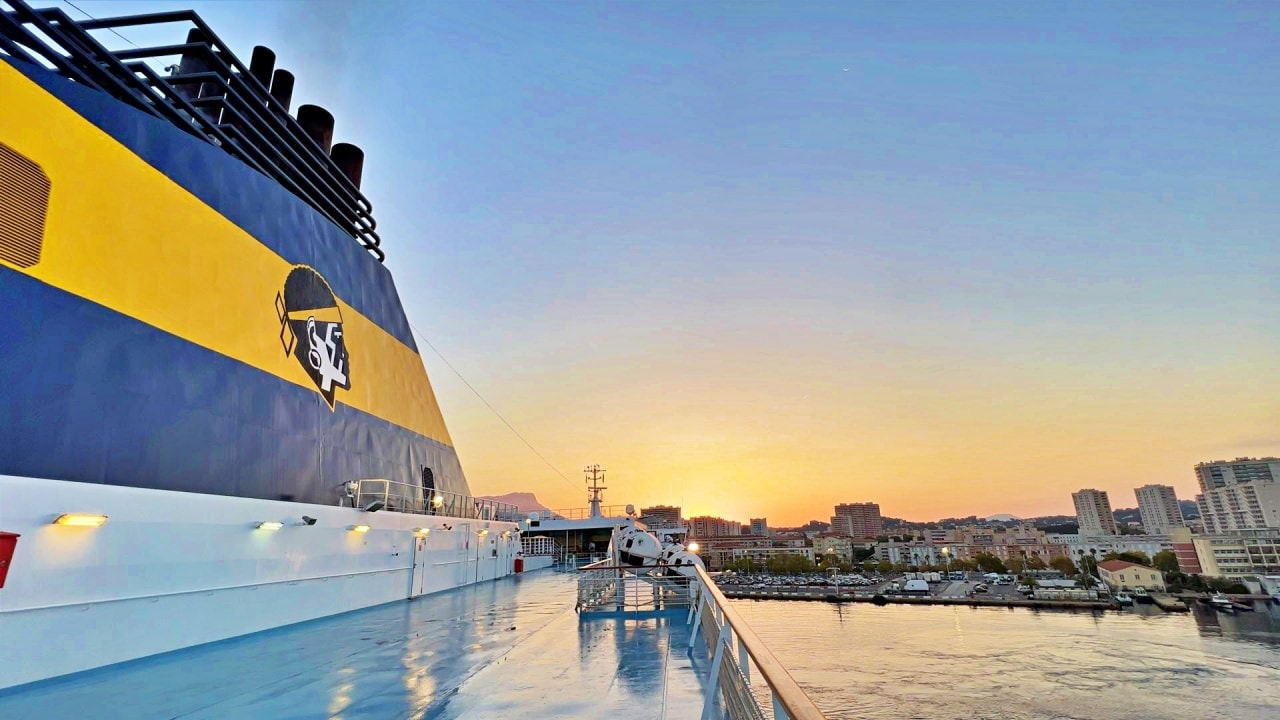
Air Travel
For those favoring a quicker journey, air travel is a viable choice. Corsica hosts four international airports: Bastia-Poretta (BIA), Ajaccio Napoleon Bonaparte (AJA), Calvi – Sainte-Catherine (CLY), and Figari Sud-Corse (FSC).
Airlines
Air Corsica, Air France, and easyJet are among the airlines offering regular flights to the island. Seasonal flights are provided by several European carriers, expanding the connectivity during the warmer months.

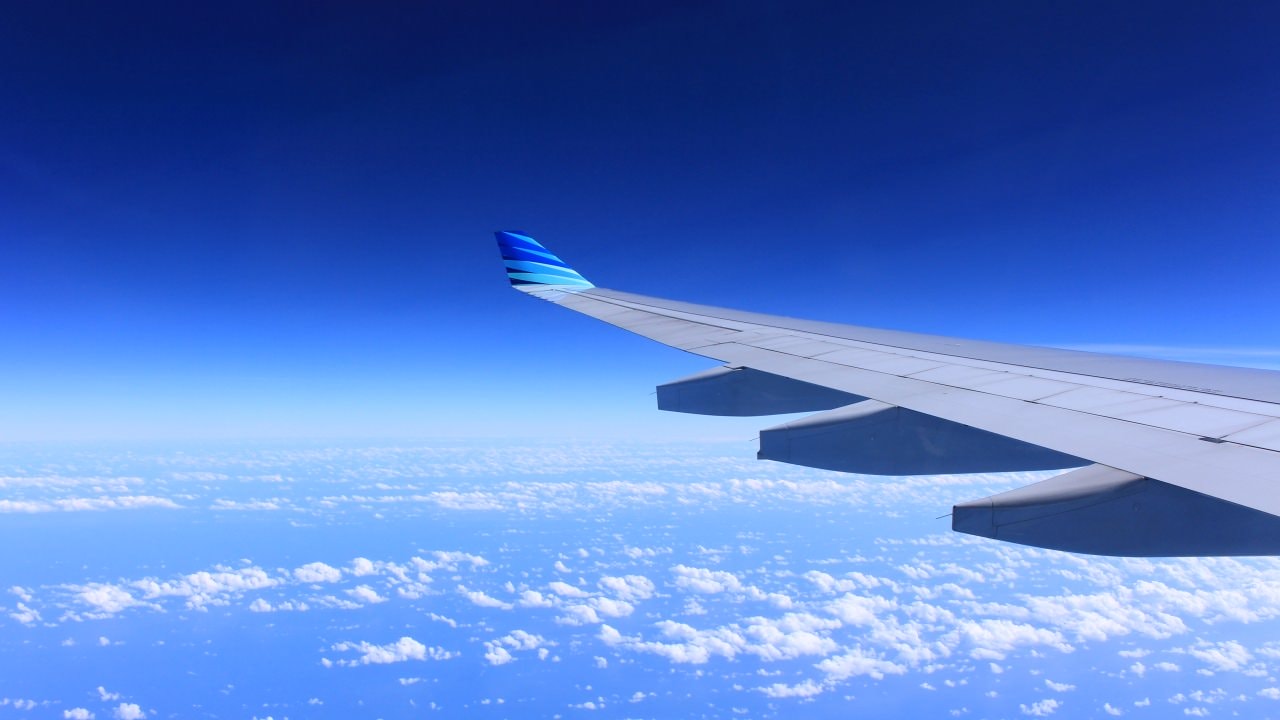
Corsican Travel: Ferry or Flight?
Both modes of transport offer unique advantages and drawbacks, catering to different preferences and circumstances.
Ferry Travel to Corsica
Advantages:
- Cost-Effectiveness: Traveling by ferry is a budget-friendly option, especially for groups. The cost per person significantly reduces when traveling with family or friends.
- Vehicle Transportation: The convenience of bringing your own car allows for a personalized exploration of Corsica’s scenic drives at your own pace.
- Luggage Generosity: Unlike airlines, ferries offer a generous luggage allowance, alleviating the worry of packing restrictions.
- Scenic Journey: The ferry journey unveils a slow reveal of Corsica’s breathtaking shoreline, providing a picturesque start and end to your Corsican adventure.
Disadvantages:
- Longer Travel Duration: The ferry journey, albeit scenic, is time-consuming, especially when compared to the swift nature of air travel.
- Accessibility: To board a ferry, travelers need to reach ferry terminals located in southern France or Italy, which could add to your travel time and costs.
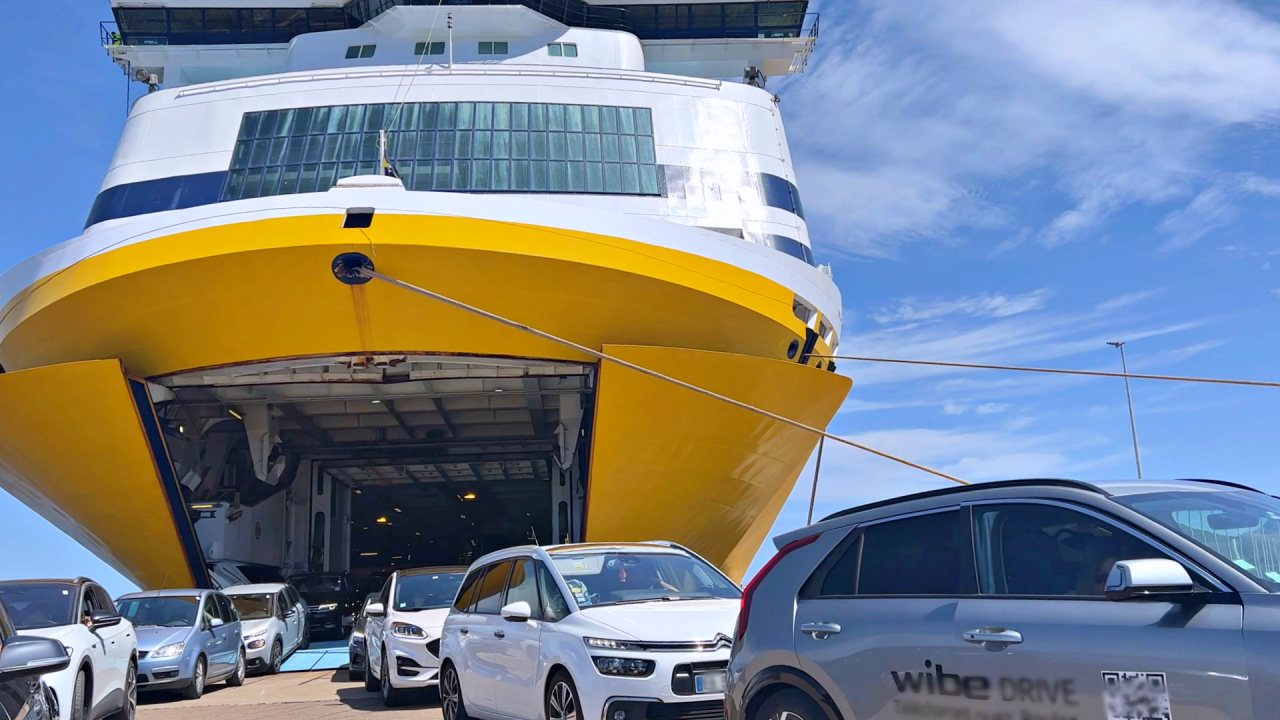
Air Travel to Corsica
Advantages:
- Speed: Air travel is the quickest way to Corsica, particularly beneficial for those traveling from Northern Europe.
- Convenience: With a flight duration of approximately 2 hours from Paris, air travel provides a swift transition to your Corsican retreat.
Disadvantages:
- Cost: Airfare can be on the higher side, especially for larger groups. The financial advantage of ferry travel becomes more apparent when traveling with multiple companions.
- Luggage Limitations: Airlines impose a strict luggage allowance, which may require careful planning and potentially incurring extra charges for additional baggage.
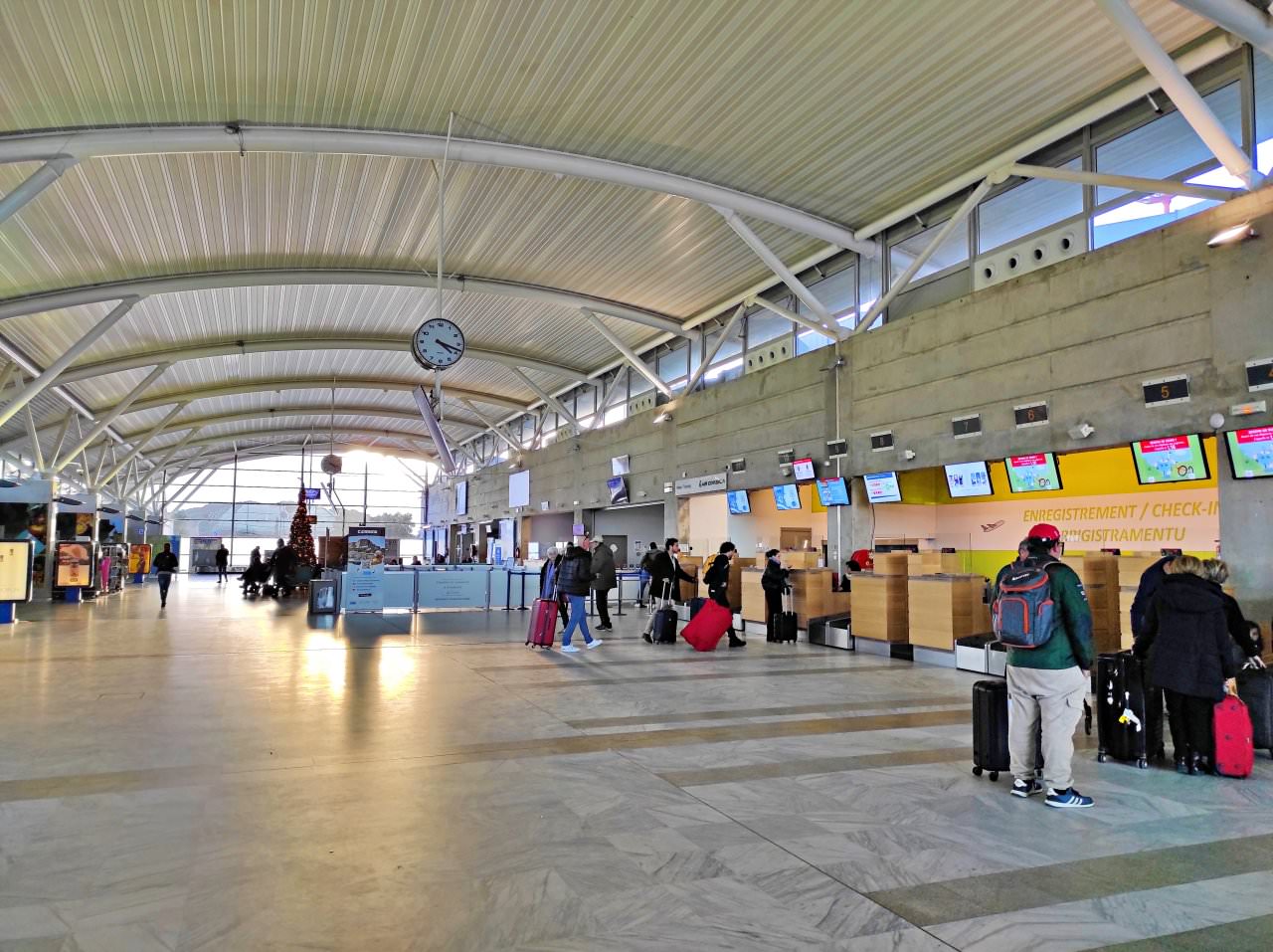
Assessing the size of your group, budget, and the importance of convenience versus scenic enjoyment will guide you to the ideal choice for your voyage to this Mediterranean gem.
More thoughts: Traveling with Family & Pets?
If you’re planning a family getaway or bringing your pet along, here is some information you may need:
Family travel to Corsica
- Most ferries offer a variety of family-friendly amenities, such as children’s play areas, onboard cinemas, and restaurants with kids’ menus.
- Some ferries offer cabins with multiple beds, making them a good option for families with young children.
Pet travel to Corsica
- Some airlines may charge additional fees for pet transport.
- Pets are generally allowed on ferries to Corsica, but they must be kept in designated areas.
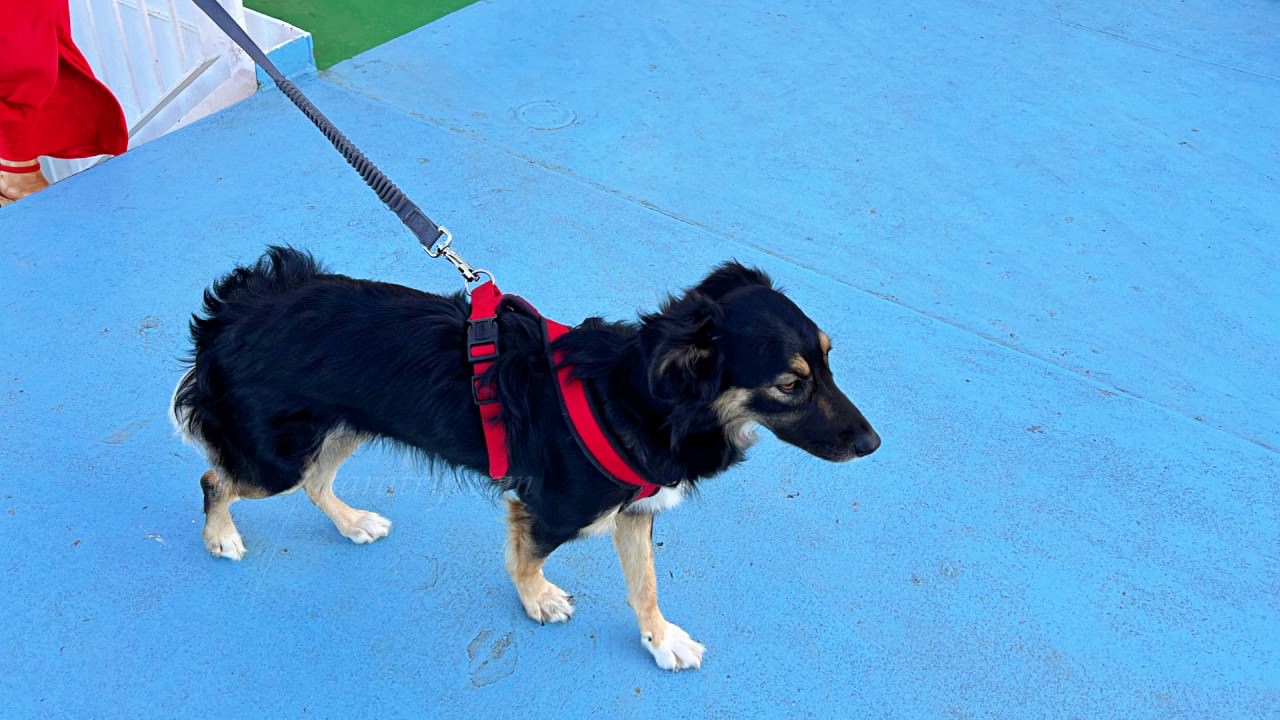
Booking Your Journey
Reaching the enthralling shores of Corsica can be done either by air or sea. Here are essential tips and platforms for a smooth booking process:
Book Flights
- Platforms: Skyscanner and Kayak offer a robust comparison of flight deals. For direct bookings, Air Corsica and Air France are reliable options.
- Booking Tips: Compare prices across different platforms, and prioritize direct flights to Corsica’s main airports: Ajaccio, Bastia, or Calvi to save time.
Book Ferries
- Platforms: Direct Ferries and Omio are your go-to platforms for ferry bookings from France or Italy.
- Booking Tips: Compare schedules and prices on these platforms to find a sailing that suits your itinerary and budget.
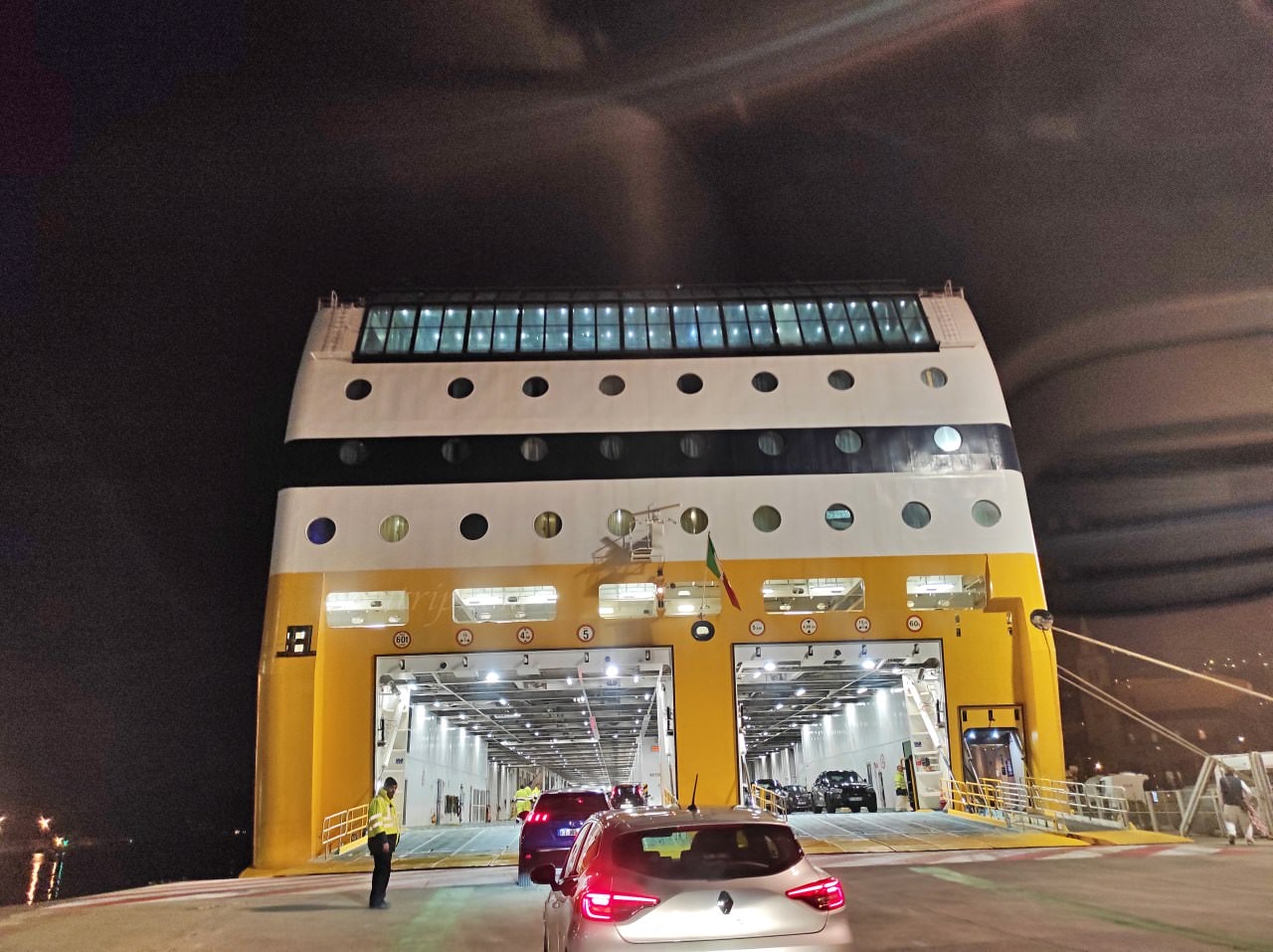
Choose between a ferry or flight to smoothen your Corsica journey. If you require a car rental on the island, explore our Corsica car rental guide here. Your Mediterranean adventure awaits, driven by your choices.
FAQs
Q1: When is the best time to visit Corsica?
A1: The best times to visit Corsica are during the shoulder seasons, which are April to May and September to October. These months offer milder weather and fewer crowds.
Q2: Is it necessary to have a car in Corsica?
A2: Yes, having a car in Corsica is advisable for optimal access to attractions and the flexibility to explore the island at your own pace. If you require a car rental on the island, explore our Corsica car rental guide here.
Q3: What are the must-see attractions in Corsica?
A3: Corsica boasts several must-see attractions, including Ajaccio, Bonifacio, Calvi, Corte, the GR20 hiking trail, and the Scandola Nature Reserve.
Q4: What are the highlights of Corsican cuisine?
A4: Corsican cuisine is a treat for the taste buds, with specialties like Brocciu cheese, figatellu sausage, polenta, wild boar stew, and the delightful chestnut cake.
Q5: What languages are spoken in Corsica?
A5: In Corsica, you’ll hear both French and Corsican being spoken.
Q6: What is the currency used in Corsica?
A6: The currency used in Corsica is the Euro (€).
Q7: What is the time zone in Corsica?
A7: Corsica follows the Central European Time (CET) zone.
Q8: Do I need a visa to visit Corsica?
A8: EU citizens do not need a visa to visit Corsica due to the Schengen Agreement. Non-EU citizens should check specific visa requirements based on their nationality before traveling.
Q9: What is the emergency number in Corsica?
A9: The emergency number in Corsica is 112.
Q10: What’s the best way to stay connected in Corsica?
A10: To stay connected in Corsica, you can either use roaming services from your home country or opt for a local SIM card.
Q11: How does the cost of living in Corsica compare to mainland France?
A11: The cost of living in Corsica is generally higher than that of mainland France.
Q12: Is Corsica a safe travel destination?
A12: Yes, Corsica is generally considered a safe travel destination.
Q13: What are some Corsican cultural customs to be aware of?
A13: Corsicans take pride in their independence, so it’s important to respect local customs and traditions during your visit.
Q14: What should I pack for a trip to Corsica?
A14: Essential items to pack for your Corsican adventure include sunscreen, insect repellent, a hat, sunglasses, comfortable shoes, a swimsuit, and a camera to capture the beauty of the island.
